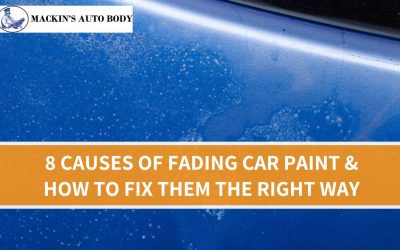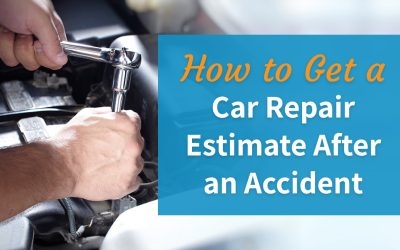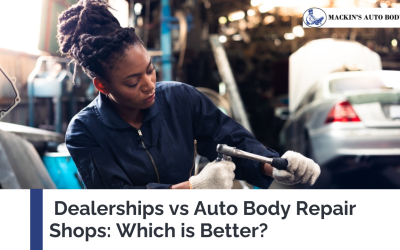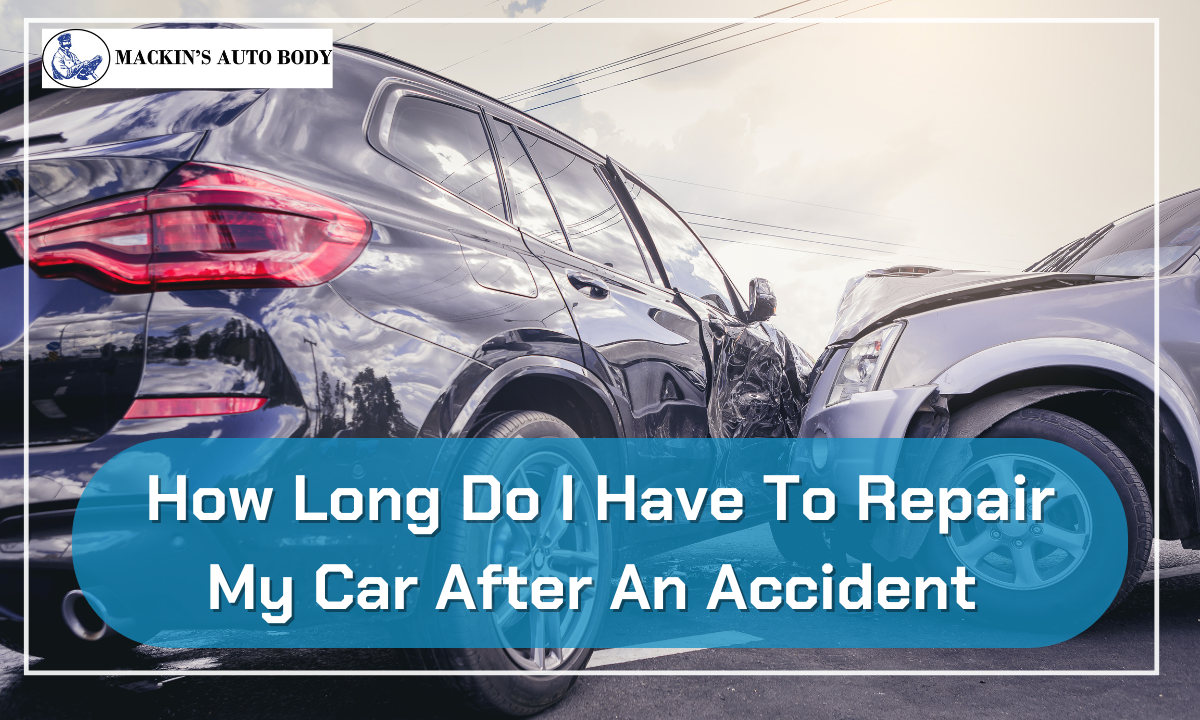
After a car accident, there are often a number of questions that come up.
How much time do you have to take your car in to be repaired? How do you pay for it? What are the insurance requirements for car repair after an accident? Do you have to use the money you received from an insurance claim for repairs?
When you’re dealing with insurance claims, possible personal injury, and damage to your vehicle, it can be hard to know where to turn for helpful and accurate information. This article will clear up confusion and answer common questions about collision repair after an accident.
How long do I have to repair my car after an accident?
The short answer is it depends on your auto insurance policy and personal circumstances.
Most insurance companies don’t set a strict deadline for when repairs must be completed, but they often require you to file a claim within a specific timeframe after the accident.
Once your claim is approved, your coverage for vehicle repair may remain valid indefinitely, but it’s a good idea not to delay repairs.
Is there a deadline to make an insurance claim after an accident?
Insurance companies differ when it comes to timelines for reporting and using your policy coverage. Check your state’s statute of limitations to determine the exact amount of time you have to file your claim with your car insurance company.
Generally, it’s a good idea to contact your insurance company as soon as possible following an accident. The sooner you start the repair process, the better. Not only will your car be fixed sooner, but the details of the crash will still be fresh in your mind.
Once you’ve contacted your insurance company and filed a claim, you’ll be assigned a claims adjuster who will help guide you through the process and inform you of any time limitations for using your coverage.
Consequences of Delaying Car Repair
While you might feel tempted to delay car repairs after an accident, doing so can have consequences. Delaying car repair could lead to worsening vehicle damage, increased repair costs, and even affect your insurance coverage.
If left untreated, damage to critical components like the frame, suspension, or engine can create safety concerns driving after an accident. Additionally, driving a damaged car may increase the risk of future accidents, and some insurance companies may refuse to cover additional damages caused by delays in repairs. Learn important tips for inspecting your car after an accident.
Related: Is My Car Safe to Drive After an Accident?
Do I have to fix my car with insurance money?
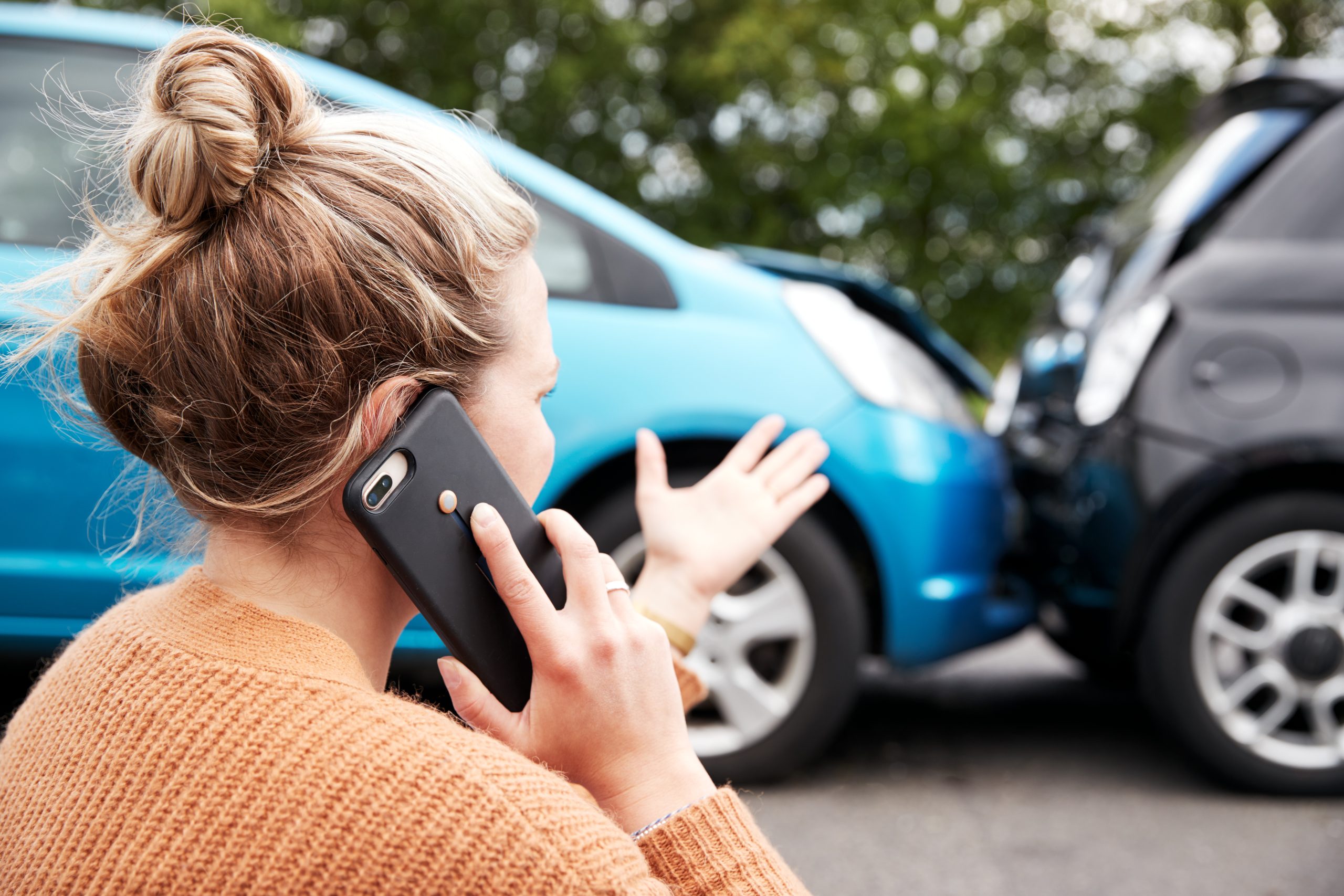
If the damage to your vehicle is minor, you may be wondering if you can choose to forgo repairs and use the insurance money for something else. The answer usually depends on whether or not you own the vehicle outright.
If you’re making payments on your car, that means the lender technically still owns it and has a vested interest in retaining its value. In this case, you’re typically required to have it repaired to meet insurance requirements for car repair after an accident. If you own your vehicle outright, you’re usually free to use the insurance money however you like, though most people still use it to repair the damage.
What should I do if I can’t afford car repair?
If you can’t afford car repair costs, there are still options available. For example, some repair shops offer financing options that allow you to pay for repairs over time. Another solution could be to perform temporary solutions before car repair, such as fixing minor issues yourself or focusing on essential minor collision repairs to make your vehicle safe to drive while you save for bigger repairs.
Can I drive my car while it’s damaged?
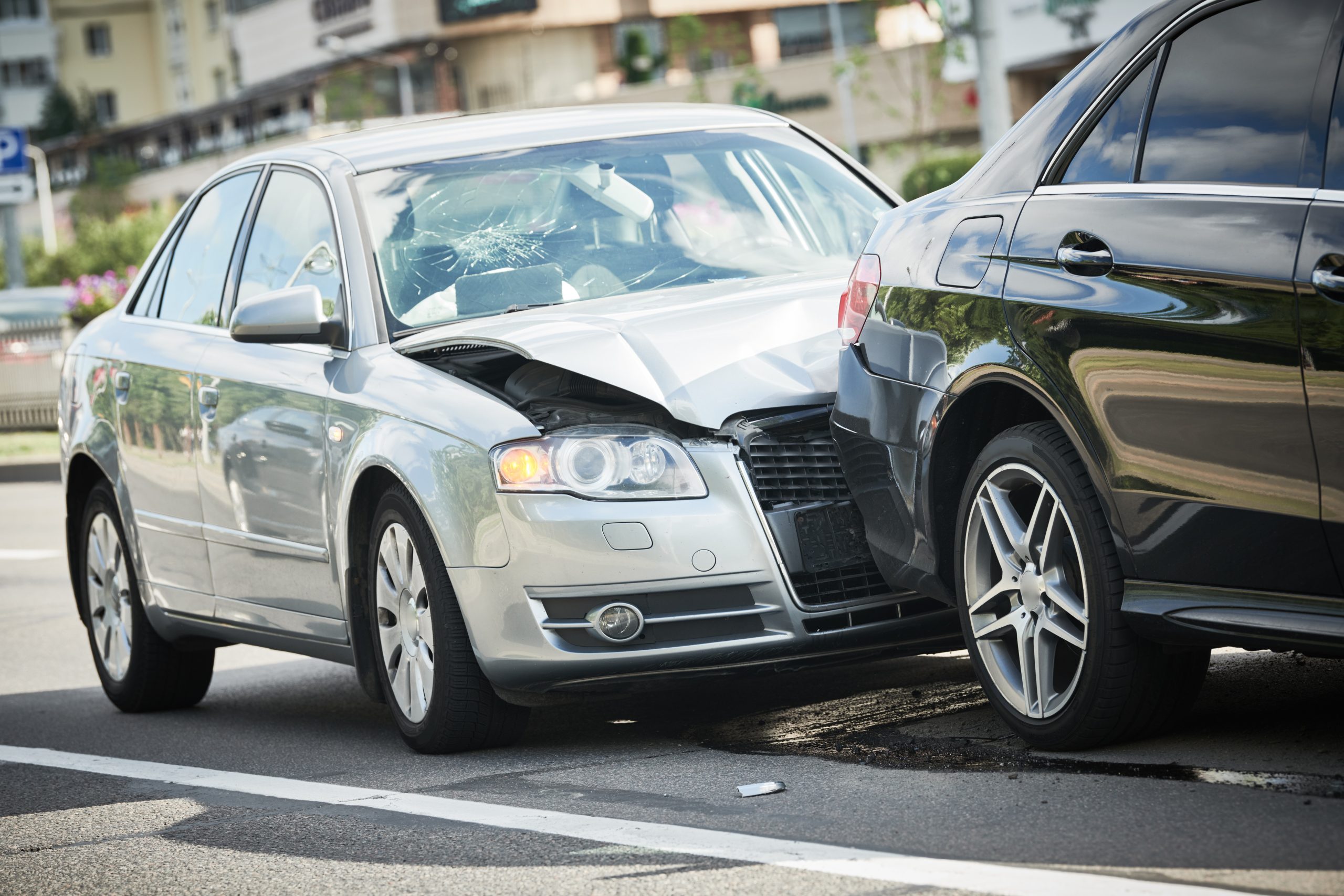
If your car is still running following an accident, you may be wondering if you can still drive it while you’re waiting to have it fixed.
While in some cases it’s perfectly safe and legal to drive a car after an accident (a small dent in your rear bumper, for example), some types of damage make your car hazardous and/or illegal to drive.
Here are some examples:
- Cracks in the windshield that obstruct or impair your vision
- Doors, trunks, or hoods that don’t latch properly
- Damage that involves or threatens the integrity of the engine or gas tank
- Missing bumpers
- Jagged or sharp edges
How long do car repairs take?
The repair time needed following an accident varies substantially based on the angle and speed of the accident, the location and type of damage, the make and model of your vehicle, and the body shop you take it to. A broken windshield can often be replaced in a day or two, while extensive damage or damage to a classic, foreign, or limited-edition car can take weeks or even months to complete, especially if the needed parts are difficult to find.
The best way to determine how long your car will take to fix is to take it to a quality body shop for a reliable car repair estimate.
Can I repair my own car after an accident?
If the damage isn’t too extensive and you’re fairly handy, you might want to do the repairs yourself. If there is no lien on your vehicle (i.e. you own it outright), you are free to take a crack at fixing the damage yourself. However, this is not recommended for anything more than very minor damage.
Some types of repairs require specialized tools and equipment, and it’s not uncommon for auto body shops to find hidden damage once they begin repairs (damage that you might miss if you don’t know what to look for). If there is a lien on your vehicle, you will most likely not be allowed to perform the repairs yourself, since your lender will want the repairs done by a professional shop.
Steps to repair your car after a collision
Here’s a quick guide to getting your car repaired after a collision:
- Assess the damage: Inspect the damage and, if possible, document it by taking pictures.
- File an insurance claim: Contact your insurance provider and report the accident to start your claim.
- Get a repair estimate: Visit a trusted body shop or mechanic to assess the full extent of the damage.
- Body shop vs. mechanic for accident repairs: While choosing between a body shop or mechanic for accident repairs, remember that they offer different services. Body shops specialize in structural and collision repairs, whereas mechanics focus more on the engine and other mechanical issues.
- Schedule repairs: Once your estimate is approved, schedule repairs to get your vehicle back on the road safely as soon as possible.
Common Mistakes to Avoid After an Accident
Going through an accident and having to deal with the aftermath is overwhelming. Here are some common mistakes to avoid throughout the process:
- Failing to document the damage: Forgetting to take photos of your vehicle’s damage and the accident scene can complicate insurance claims. Always document everything thoroughly.
- Delaying the insurance claim: Waiting too long to file a claim may result in coverage denial, especially if your policy has strict timelines for reporting accidents.
- Not understanding your policy: Many drivers are unaware of what their insurance covers. Take the time to review your policy or ask your adjuster about your coverage for repairs, rentals, and timelines.
- Choosing the cheapest repair shop: It’s important to stay within your budget, but don’t jump to the lowest-cost option without considering reviews, certifications, or warranties.
- Ignoring hidden damage: Some types of damage, like issues with the frame or suspension, might not be immediately visible. Skipping a professional inspection could leave you with unresolved problems that worsen over time.
- Driving an unsafe vehicle: Driving a damaged car that doesn’t meet safety standards can lead to fines, accidents, or even more extensive repairs down the road. Always prioritize safety.
Get Your Car Repaired at Mackin’s: Portland’s Most Trusted Auto Repair Shop
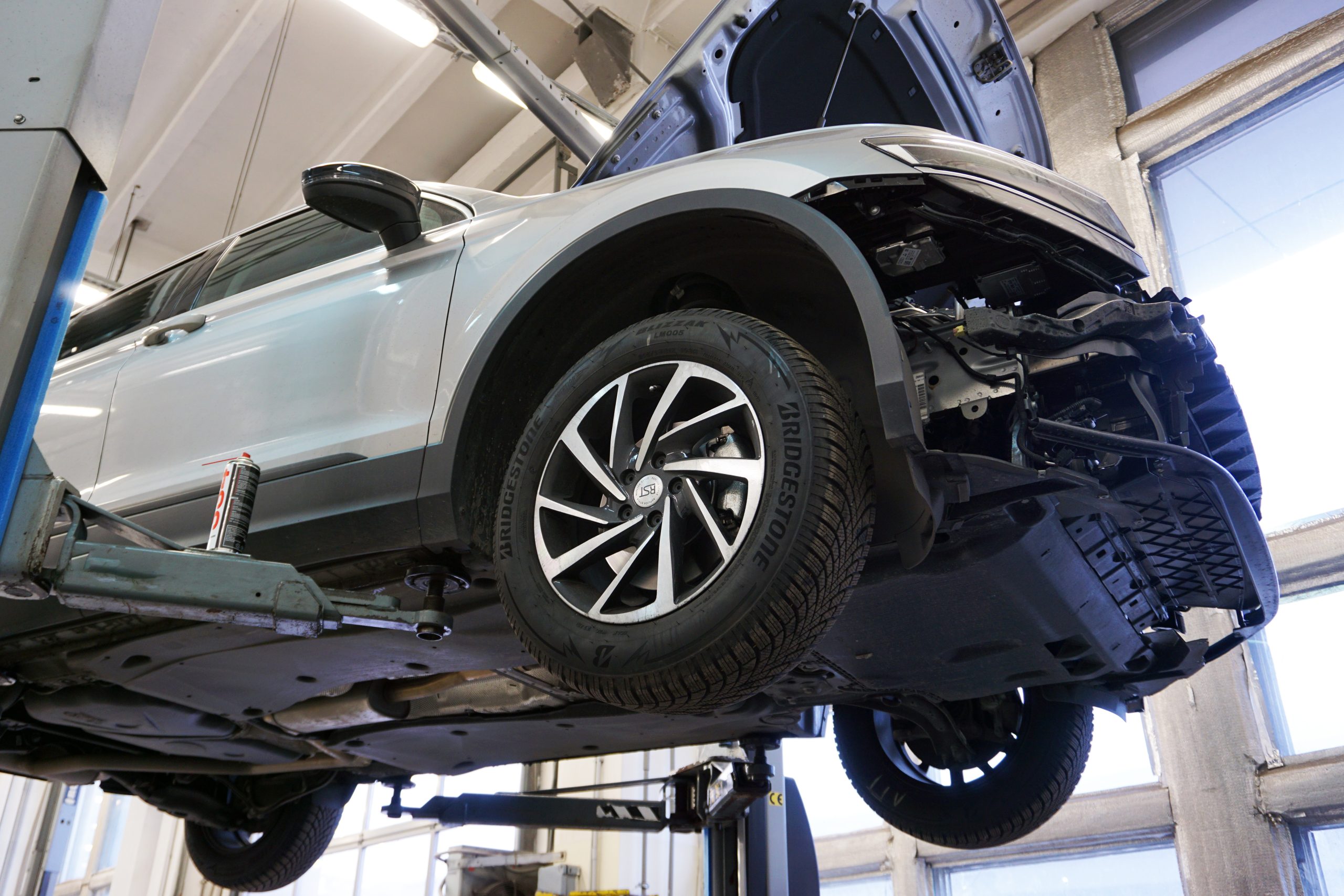
Choosing the right body shop can make all the difference when it comes to navigating the weeks and months after a car accident. Mackin’s Auto Body has been fixing cars and providing top-notch service in the Portland area for decades. Our team of certified technicians is dedicated to getting the job done right the first time. We offer comprehensive accident resources and work directly with insurance companies to handle your claim and get you and your car back on the road as quickly and conveniently as possible.
If you’ve been in an accident and need your car fixed, we’re here to help. Call us at 1-800-653-0665 or stop by one of our 9 convenient Portland-area locations.
Chris Roberts is the Director of Operations at Mackin’s Auto Body, where he has been making an impact since 2018. With a career in collision repair that started in 1999, Chris brings a wealth of experience and dedication to his role. Before stepping into his current position, he served as the Assistant Operations Manager at Mackin’s Auto Body from 2013 to 2017. Chris holds a BA from Northwest Nazarene University. When he’s not ensuring everything runs smoothly at Mackin’s, you can find him skiing down snowy slopes, wake surfing on sunny days, or cheering on his daughter at her soccer games.

